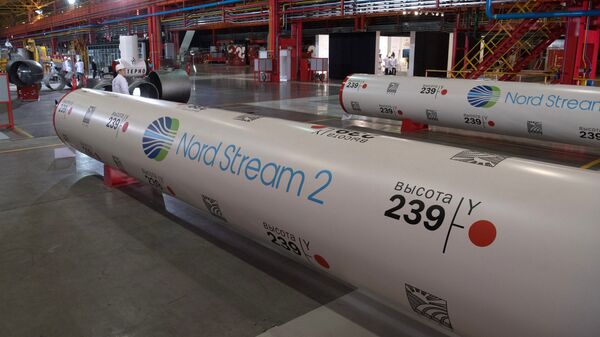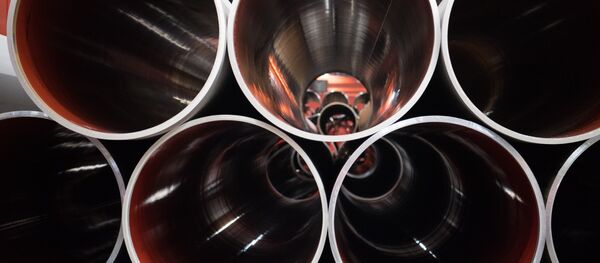"WWF of Russia is not against the deliveries of gas to Europe, including within the framework of Nord Stream 2, as long as the route of the pipeline is changed. We have only one complaint – the change of the route. The main problem is the route through the Kurgal nature reserve. The rest does not represent a crucial concern for the environmental community of Russia," Alexey Knizhnikov, WWF Russia's oil& gas programme leader, said.
With the fund’s efforts, the consultations with the Russian state energy giant Gazprom, which is involved in the pipeline project, were held throughout 2017 and now are at the stage of state expertise, Knizhnikov noted.
"The project is not secret. It is absolutely open and we have no complaints in this regard. In autumn of 2017, at the initiative of the Public Chamber and WWF, a roundtable was held at the Russian government’s Analytical Center. The final document was sent to the government to find solutions to an alternative route along the Gulf of Finland," the WWF oil& gas programme leader added.
At the same time, pipeline project's media representative Steffen Ebert said that Claims against the construction of the Nord Stream 2 gas pipeline project put forward by Germany's Nature and Biodiversity Conservation Union (NABU) and the World Wide Fund for Nature (WWF) contradicted facts about minimal short-term and locally limited impact of the project on the environment.
"The claims put forward by the environmental associations do not stand up to factual examination … As part of the permitting process according to German legislation, Nord Stream 2 AG made its extensive permit application documentation available to the public as early as in the spring of 2017. These documents provide detailed information on topics," Steffen Ebert, an adviser to Nord Stream 2, said.
The documents provided by the Nord Stream 2 project include the results of the comprehensive monitoring program for the existing Nord Stream pipeline, which shows that Nord Stream 2 is compatible with the environment, as its impacts are locally limited and short-term only, Ebert added.
The WWF and the Nature and Biodiversity Conservation Union (NABU) urged on Thursday German Chancellor Angela Merkel, Christian Social Union (CSU) party leader Horst Seehofer and Social Democratic Party (SPD) head Martin Schulz to ban the construction of the Nord Stream 2 gas pipeline, claiming it threatened the fight against climate change and the fragile ecosystem of the Baltic Sea.
READ MORE: How Norway Can Help Russia Build Nord Stream 2 Gas Pipeline
The Nord Stream 2 twin pipeline implies the construction of two strings with an annual gas capacity of 55 billion cubic meters. The new pipeline is planned to be laid along the original Nord Stream pipeline route, starting from the Russian coast, then through the Baltic Sea to a hub in Germany, bypassing Ukraine.
Nord Stream 2 is a joint venture of Russia’s Gazprom with France's Engie, Austria’s OMV AG, UK-Dutch Royal Dutch Shell and Germany's Uniper and Wintershall.


